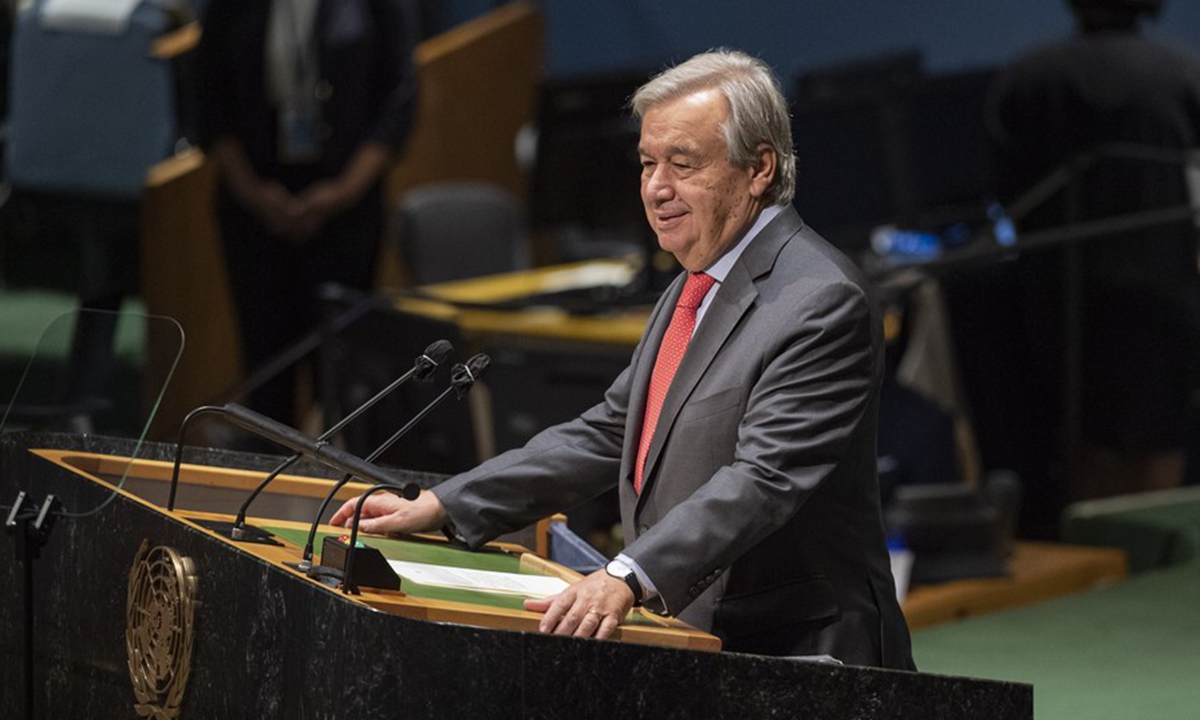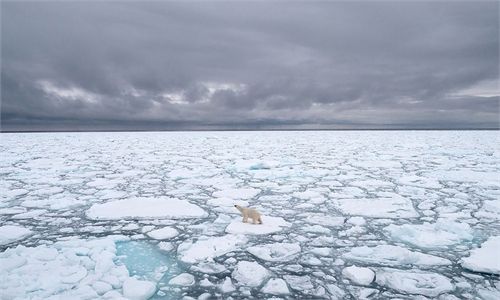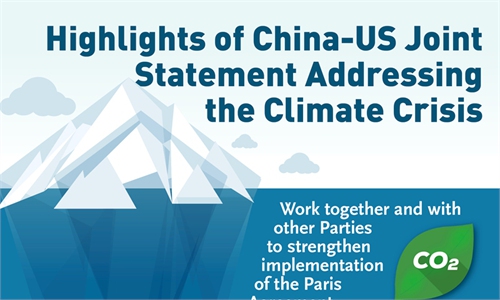
United Nations Secretary-General Antonio Guterres addresses a high-level UN meeting to mark the International Day for the Total Elimination of Nuclear Weapons at the UN headquarters in New York, on Oct. 2, 2020. (Rick Bajornas/UN Photo/Handout via Xinhua)
UN Secretary-General Antonio Guterres wants the US to commit this week to at least halving its greenhouse gas emissions by 2030 - a move he said could unlock similar action from the world's other large emitters.
The US, the world's biggest economy and second-biggest emitter of greenhouse gases, will host a virtual climate change summit on April 22 and 23. Washington has urged world leaders to use the event as an opportunity to pledge more ambitious emissions cuts. Guterres said the White House's own pledge needed to set the bar high.
"My expectation is that the US will be able to present a reduction of emissions for 2030, in relation to 2010 levels, above 50 percent," Guterres said.
"If it happens, I have no doubt that it will have very important consequences in relation to other areas of the world that have not yet entirely defined these levels," he said.
The White House is widely expected to unveil a target to cut emissions by at least 50 percent by 2030, from 2005 levels.
That would be equivalent to a 47 percent reduction by 2030 when compared with 2010 levels, according to research firm the Rhodium Group.
With climate change already worsening heat waves, strengthening hurricanes and making wildfires more ferocious, Guterres called this week's summit a "make it or break it" moment for climate action.
Scientists say global emissions must plummet this decade and reach net zero by 2050 in order to limit global warming to 1.5 C above pre-industrial levels in order to prevent cataclysmic climate impacts.
"The worst risk is that we don't reach 1.5 degrees as a limit, that we go over it, and that we precipitate the world into a catastrophic situation," he said, urging all major emitters to set targets for drastic emissions reductions this decade.
Given the urgency of the climate crisis, Guterres said he hoped the next major UN climate summit, known as COP26, could be held in person in November in Glasgow.
The UN along with this year's British hosts are discussing how to ensure participants can be vaccinated and attend the conference in person, he said.
The UN climate conference was already postponed by a year due to the COVID-19 pandemic, and Britain is fielding questions about how the event, originally expected to draw 30,000 attendees, can go ahead given the uneven global rollout of vaccines, particularly in developing countries.
Throughout the pandemic, the world's top diplomat has been beating the drum for ambitious climate action, calling for an end to fossil fuel subsidies and a phaseout of coal-fueled power generation in wealthy countries like Japan and South Korea by 2030, and globally by 2040.
Renewable energy costs have plummeted in recent years, and advances in technologies like battery storage mean green solutions are increasingly cost competitive.



